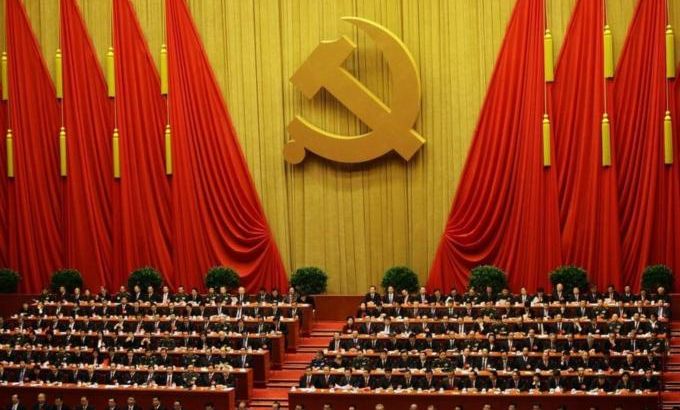Communist Party Congress closes in China
A day before unveiling China’s new leadership line-up, outgoing President Hu Jintao officially wraps up the congress.

China’s Communist Party is bringing their National People’s Congress to a close, a day before unveiling its leaders for the coming decade.
President Hu Jintao and premier Wan Jiabao are expected to step down in favour of the anointed successors, Vice President Xi Jinping and Li Keqiang in what would be only the second orderly transfer of power in 63 years.
The party’s 2,200-plus delegates filed into Beijing’s Great Hall of the People in the morning to select members of the Central Committee, a panel of a few hundred people that approves leadership positions and sets broad policy goals.
“I now announce that the 18th Chinese Communist Party Congress has come to a victorious conclusion,” Hu told delegates.
But the next lineup in China’s apex of power, the Politburo Standing Committee, will be announced only on Thursday.
Though congress and Central Committee delegates have some influence over leadership decisions, most of the lineup is decided among a core group of the most powerful party members and elders.
Al Jazeera’s Mike Hanna, reporting from Beijing, said: “The delegates have elected a committee which will elect a Politburo and the Standing Committee which is the apex of the power for the next decade.”
The voting concluded in the late morning, and the state Xinhua News Agency said in a report that Xi and premier-in-waiting Li had been voted onto the Central Committee.
All the other eight leading officials who have been tipped as possible members of the Standing Committee also made it on to the Central Committee, according to Xinhua.
That includes North Korean-trained economist Zhang Dejiang, financial guru Wang Qishan, minister of the party’s organisation department Li Yuanchao, Tianjin’s party boss Zhang Gaoli, and the conservative Liu Yunshan, who has kept domestic media on a tight leash.
Hu and senior leaders mostly in their late 60s are handing over power to Xi, 59, and colleagues of his generation over the next several months.
Li, currently vice premier, already was tapped five years ago to be the country’s next premier, China’s top economic official.
The congress is a largely ceremonial gathering of representatives – mostly carefully selected from the national and provincial political and military elite who have met to endorse a work report delivered by Hu at the opening a week ago.
Top positions
The real deal-making for the top positions on the Standing Committee is done behind the scenes by the true power-holders.
Aside from appointing Central Committee members, delegates assembled inside the Great Hall of the People were tasked with selecting the membership of the party’s internal corruption watchdog, the Central Discipline Inspection Committee, and with voting on amendments to the party’s charter.
After the congress ends, the Central Committee meets on Thursday to select the next Politburo and from that, the Politburo Standing Committee, largely on the advice of influential leaders.
The leaders also will select new members of the party’s Central Military Commission, which oversees the 2.3 million member People’s Liberation Army.
It is unclear if Hu will relinquish his position at the head of the commission or hold on to it for a period after retirement, as past leaders have, to retain influence.
Hu will remain president until March.
China’s leadership transitions are always occasions for fractious backroom bargaining, but this one has been further complicated by scandals that have fed public cynicism that their leaders are more concerned with power and wealth than government.
In recent months, Bo Xilai, a senior politician seen as a rising star, was purged after his aide exposed that his wife murdered a British businessman.
An ally of Hu’s was sidelined after his son died in the crash of a Ferrari he shouldn’t have been able to afford.
Hu, in his speech at the opening of the Congress said the party had to better tackle corruption issues or risk fatal damage.
“If we fail to handle this issue well, it could prove fatal to the party, and even cause the collapse of the party and the fall of the state,” said Hu.